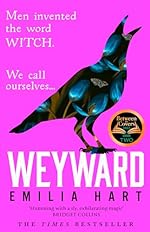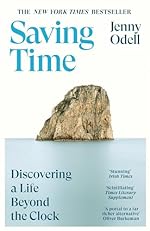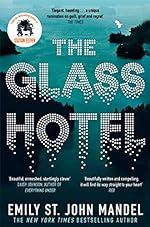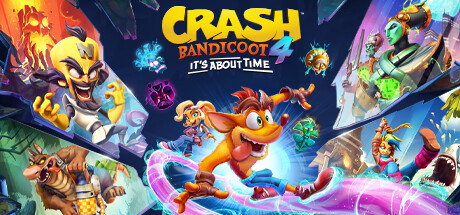June '24 Monthly Review
This is the sixth post of my series of monthly review posts for 2024. Other entries in the series:
Summer's finally here, and probably over, with that one nice week of weather that we had.
Home
Look, I'll be honest, June has been a tough month as there's been some stuff going on I don't want to hugely get into. So quickly moving on…
The space in our garden where we dug out all the gravel has returned to nature. Wildflower shoots have sprung and are almost ready to flower. It turns out that we also have a plum tree in the garden. My son made a 'seed bomb' and sowed this alongside our wildflower seeds, earning the 'Let it Grow' badge at his local Scout group.
I have picked up my running efforts again, even managing a five mile run in the thunderstorm. It hasn't meaningfully touched my weight, but I suppose it gets harder to shift as you get older. To complement this exercise I've bought some dumbbells - I try to incorporate reps throughout the day between meetings. The challenge with working from home is that it's far too easy to just sit on your arse all day.
Work
In the Principal role it's common to be pulled into technical escalations: projects get stuck and need a helping hand. Although it's somewhat stressful dropping into a new situation, the earlier years in my career spent doing consultancy work have trained me well. This month I've spent some time with a team building out a Postgres database with a high volume of incoming data, some complex materialized view functionality, replication tasks via AWS DMS and some performance issues holding back operational readiness. To help them as best as I can, I went deep into the nuts and bolts of how Postgres internally handles data. I learned more about "dead tuples" and how they're cleaned up (the VACUUM operation). Further, through observing CloudWatch metrics charts, I learned how to identify the source of database performance issues. A high disk queue alongside high read OPS and latency indicate a large ratio of dead-to-live tuples, and in the case of Amazon RDS instances, an autovacuuming process that could be better tuned. By no stretch of the imagination am I a database expert, but it's certainly been a fun challenge to pick all of this up and add it to the utility belt.
I also spent some training time completing Google's (free) Technical Writing course, and put it to practice in documenting the findings from the Postgres investigations to senior leadership and in reworking user guides that my team produces for application engineers. Developers have historically had a poor relationship with documentation, perhaps this comes from the days of waterfall and endless project governance documentation. I actually think there's a shortage of skills around purposeful, well-written technical documentation that, if addressed, would significantly improve how teams work together. Architectural Decision Records are an excellent example of good-quality documentation that stands the test of time.
Books
Weyward by Emilia Hart

Weyward tells the story of three generations of witches (that's a man's word, though): Kate in comtemporary times, her Great Aunt Violet during World War 2 and their old ancestor Altha from the 17th Century. All three were treat awfully by the men in their lives. The story is one of survivorship and discovery, as Kate escapes her situation and learns of her lineage, and her powers (or is it attunement to nature?) grows. I understand that one person's 'empowering' book (as it's described on Jeffrey Bezos dot com) is another person's miserable slugfest. Difficult content aside, this was a good story well told. Kate's partner was portrayed as a terrifying threatening presence throughout the novel, leading to an excellent finale.
And why is witch a man's word?
“Witch. The word slithers from the mouth like a serpent, drips from the tongue as thick and black as tar. We never thought of ourselves as witches, my mother and I. For this was a word invented by men, a word that brings power to those who speak it, not those it describes. A word that builds gallows and pyres, turns breathing women into corpses.”
Saving Time: Discovering a Life Beyond the Clock by Jenny Odell

Saving Time was recommended me by an Agile Coach friend. Perhaps I ought to have read its predecessor, How To Do Nothing, first. This is a strange book, taking on an almost stream-of-consciousness structure interspersed with reflections from travels in nature. I found this disjointed. Further, the text is heavy on literature review. If I could distill the content of the book into one quote, it is:
“the clock can tell me whether I am late for work, but it cannot tell me whether it is too late to mitigate runaway climate change.”
The author bases their argument on the classic separation of chronos and kairos: quantitative and qualitative time. Odell details how time is perceived, primarily through clock time, but notes how this isn't equal for all perspectives. In capitalism, for instance:
For the worker, time is a certain amount of money-the wage. But the buyer, or employer, hires a worker to create surplus value; this excess is what defines productivity under capitalism. From an employer’s point of view, purchased time could always yield more money.
I thought the book started strong, but I found myself taking fewer and fewer notes as it went on. For a book so focused on time and the nature of time, to be quite honest I feel robbed of it.
The Glass Hotel by Emily St. John Mandel

Now this is an interesting book. I really didn't enjoy it at the beginning: there's a hotel and someone's graffiti'd on the window. It's fairly obvious who, but not why. But then the book grows - there are several characters introduced whose lives are all tied together by their adjacency, complacency or victimhood in a Ponzi scheme that collapses during the 2008 financial crisis. To say this is a slow burner is to put it politely, but I felt rewarded by perservering and finishing. The shifting narratives and even the kind-of-supernatural elements keep the story interesting. Overall, I enjoyed this, perhaps not as much as its predecessor Station Eleven.
Ghost: Rite Here Rite Now
Ghost are one of my favourite bands. Having been aware of them from around 2015-ish, I didn't really give them a listen until the single for Rats released in 2018, with the new main character, Cardinal Copia. From there it was full straight-into-the-deep-end for me. I've seen the band twice - once when they supported Metallica at the Etihad Stadium, and again when they performed in Leeds. But now they're releasing a movie, what's that about?!
Fundamentally, Rite Here Rite Now is a live concert movie, with a barnstorming setlist, stunning visuals and a top-class audio mix. There are some songs (Faith, Kaisarion and Mary on A Cross come to mind) where the live arrangement outclasses the studio recording. Suffice to say I cannot wait for the release of the live album. The movie is more than a live concert though, as during various costume changes backstage, a story develops through interactions with other characters from the Ghost Lore: Sister Imperator and Papa Nihil. During Mary On A Cross, the live performance plays to an animated cartoon in the style of Scooby Doo. During another instrumental track there's a lovely heart-to-heart moment. Tobias Forge ain't a bad actor, you know!
One stand-out and spoiler-free moment (from a lore perspective) I'd like to mention is the rendition of If You Have Ghosts. The arrangement and vocal work are something special. Punctuated with a raw and moving speech by Papa Emeritus. I won't do it justice trying to repeat the content.
The new track, The Future is a Foreign Land is hauntingly beautiful. It's a Papa Nihil song recorded in the late '60s (in lore terms) as an apology and love letter to Sister Imperator. In conjunction with the on-screen visuals as the credits roll, it accentuates the core message of the movie: what matters is right here, right now.
If you have Ghost, you have everything. Watch this movie.
Games

As promised, I fired up Crash Bandicoot 4: It's About Time on my Steam Deck. Originally I owned a release copy of this on my PS4, but that's long been sold. The game looks and plays beautifully on the 'Deck, but by fucking god it's a difficult game. It's a right battery drain too, even on Medium settings. That said I highly recommend playing this on a portable device as it fits the "pick up and play" ethos well.
Crash 4 is a huge game, combining the best aspects from the original trilogy with new platforming features. Returning to the broadly-linear structure of Crash 1, Crash and/or Coco follow N.Cortex, N.Trophy and their goons N.Gin and N.Brio throught time and space. At points the narrative branches to the side characters (Tawna, Dingodile and Cortex!) and merges at focal points. Each level has six achievable gems: four for collecting boxes, one for solving the level in 3 or fewer deaths, one hidden. But that's not all! There are four coloured gems, which unlock paths in other levels. The time trials are back too. Oh, and if you get to a certain point in a level without dying you can collect a 'flashback tape' which unlocks bonus levels similar to the N.Brio box-jumping rounds from Crash 1. If you finish a level with 100% boxes AND without dying, you unlock a platinum relic. That's a lot of collecting! And I almost forgot, there's an N-Verted version of each level with another six gems to collect. The N-Verted levels apply some form of visual filter, which is either joyous or infuriating.
New to this game are the four quantum masks, which can be used at set pieces within a level to introduce variety to the standard platforming. You can slow down time, endlessly spin, switch environmental objects in and out of phase and reverse gravity. Each brings new challenges.
I had a lot of fun playing this game, but I have criticisms. The N-Verted levels are too much - it's cheap replayability. The 'Max 3 Deaths' gems are the opposite of the Crash ethos, of experimentation, of discovery. Especially so when some of the boxes are devilishly disguised. Finally, the side-character levels transition through to another replay of a Crash/Coco level - I'd much rather the level ended where the plot merges rather than interject another replay.
Definitely worth the money though, even if that blue gem is a right pain in the arse to get.